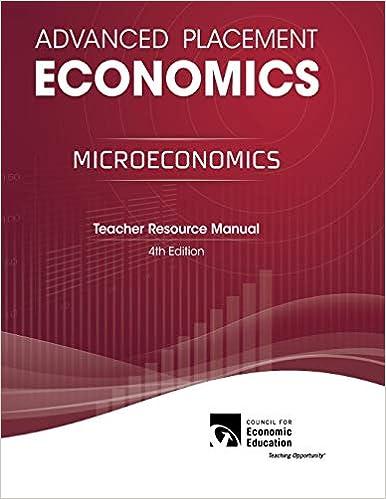Question
A.The Opportunity cost of an action is equal to: 1.Its Implicit cost 2.Its Explicit cost 3.Its explicit cost minus its implicit cost 4.The sum of
A.The Opportunity cost of an action is equal to:
1.Its Implicit cost
2.Its Explicit cost
3.Its explicit cost minus its implicit cost
4.The sum of its explicit and implicit costs
B.Suppose Joe is trying to decide whether to buy a latte at a nearby coffee shop or make a cup of coffee at home. Joe would get $5 worth of value from the latte, and the price of a latte at the coffee shop is $3. Joe would get $2.50 worth of value from a cup of homemade coffee, and it would cost him $1 to make. What is the opportunity cost to Joe of buying a latte at the coffee shop?
1.$3
2.$4.50
3.$5.50
4.$4.00
C.Suppose Joe is trying to decide whether to buy a latte at a nearby coffee shop or make a cup of coffee at home. Joe would get $5 worth of value from the latte, and the price of a latte at the coffee shop is $3. Joe would get $2.50 worth of value from a cup of homemade coffee, and it would cost him $1 to make. How much economic surplus would Joe get from buying a latte at the coffee shop?
1.$2
2.$1.50
3.$0.50
4.-0.50
Step by Step Solution
There are 3 Steps involved in it
Step: 1

Get Instant Access to Expert-Tailored Solutions
See step-by-step solutions with expert insights and AI powered tools for academic success
Step: 2

Step: 3

Ace Your Homework with AI
Get the answers you need in no time with our AI-driven, step-by-step assistance
Get Started


